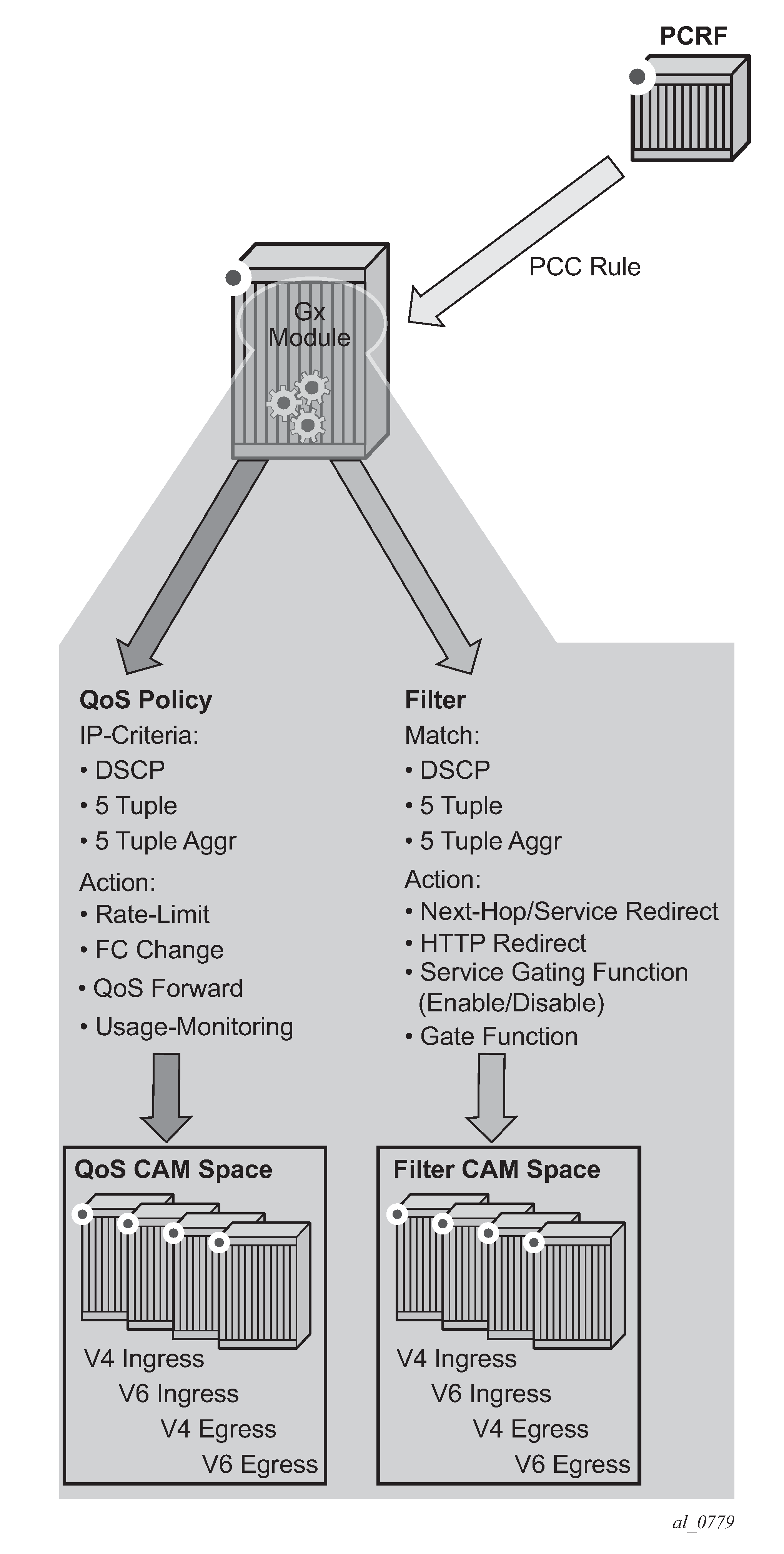A PCC rule that is submitted to the node via PCRF is internally instantiated using two basic policy constructs, QoS policy and filter policy (ACL). This internal division is transparent to the operator at the time of the rule provisioning. The operator perceives Gx as a unified method for provisioning policy rules, whether the rule is QoS-related or filter-related.
The type of action within the PCC rule determines whether the PCC rule is split between the QoS policy and the filter policy.
Rules with actions:
rate limit
forwarding class change
QoS forward; matching traffic is forwarded without QoS actions and do not match on the next entry (match and exit behavior). This is equivalent to an allowlist entry.
Usage-Monitoring
are converted into a QoS policy while the rules with actions:
next hop redirect
service ID redirect
HTTP redirect
gate function (enable/drop)
filter forward/drop
are converted into filter rules.
The operator should be aware of this division for dimensioning (scaling) purposes. Operational commands can be used to reveal resource consumption on the node.
A PCC rule is addressed to a subscriber-host (single stack or dual stack) via the diameter session-id. However, qos-policy-related entries are applied per sla-profile instance because the qos resources are allocated per sla-instance. An sla-profile instance and sla-profile are two distinct concepts. An sla-profile instance is an instantiation of the sla-profile which is a configuration concept in which parameters are defined. An sla-profile is instantiated per a subscriber-host, or multiple subscriber-hosts can share an sla-profile instance as long as they belong to the same SAP and have the same subscriber ID.
This means that all hosts sharing the same sla-profile instance inherits the change. The sla-profile instance and sla-profile are two distinct concepts. The sla-profile instance is an instantiation of the sla-profile which is a configuration concept in which parameters are defined. The sla-profile is instantiated per a subscriber-host, or multiple subscriber-hosts can share an sla-profile instance as long as they belong to the same SAP and have the same subscriber-id.
Filter-related entries are applied per each subscriber-host, whether the hosts are sharing or not sharing an sla-profile instance.
The concept of splitting the rules is shown in Figure: PCC rule conversion on the node.

The PCC rule instantiation fails if a PCC rule contains only actions without any classification, or if it contains only classification without any actions.